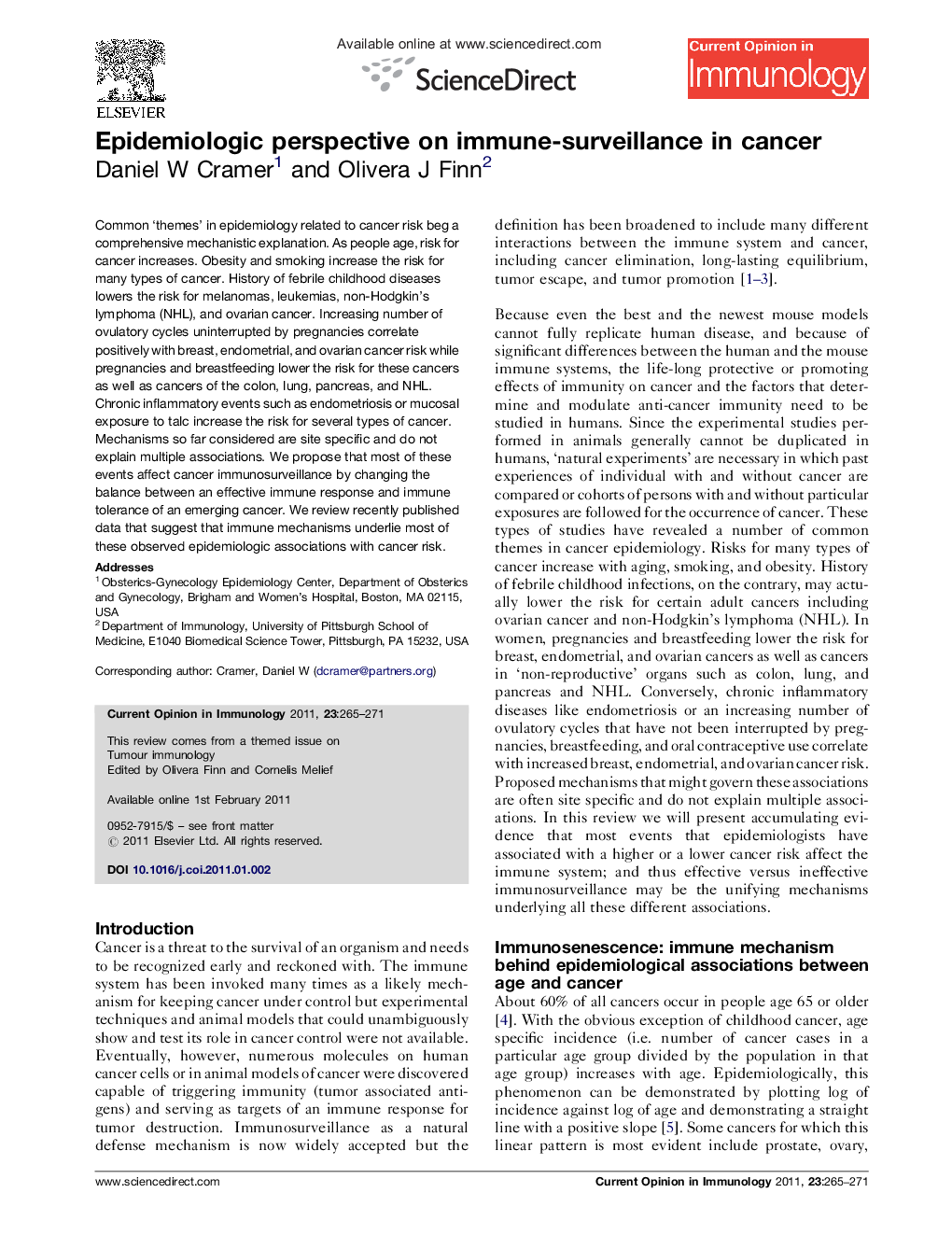| کد مقاله | کد نشریه | سال انتشار | مقاله انگلیسی | نسخه تمام متن |
|---|---|---|---|---|
| 3346025 | 1215764 | 2011 | 7 صفحه PDF | دانلود رایگان |

Common ‘themes’ in epidemiology related to cancer risk beg a comprehensive mechanistic explanation. As people age, risk for cancer increases. Obesity and smoking increase the risk for many types of cancer. History of febrile childhood diseases lowers the risk for melanomas, leukemias, non-Hodgkin's lymphoma (NHL), and ovarian cancer. Increasing number of ovulatory cycles uninterrupted by pregnancies correlate positively with breast, endometrial, and ovarian cancer risk while pregnancies and breastfeeding lower the risk for these cancers as well as cancers of the colon, lung, pancreas, and NHL. Chronic inflammatory events such as endometriosis or mucosal exposure to talc increase the risk for several types of cancer. Mechanisms so far considered are site specific and do not explain multiple associations. We propose that most of these events affect cancer immunosurveillance by changing the balance between an effective immune response and immune tolerance of an emerging cancer. We review recently published data that suggest that immune mechanisms underlie most of these observed epidemiologic associations with cancer risk.
Research highlights▶ There are common themes in cancer epidemiology that beg comprehensive explanations. ▶ Age, smoking, obesity, and other events could operate through immune surveillance. ▶ Exposure of the immune system to cellular proteins may underline an immune mechanism.
Journal: Current Opinion in Immunology - Volume 23, Issue 2, April 2011, Pages 265–271